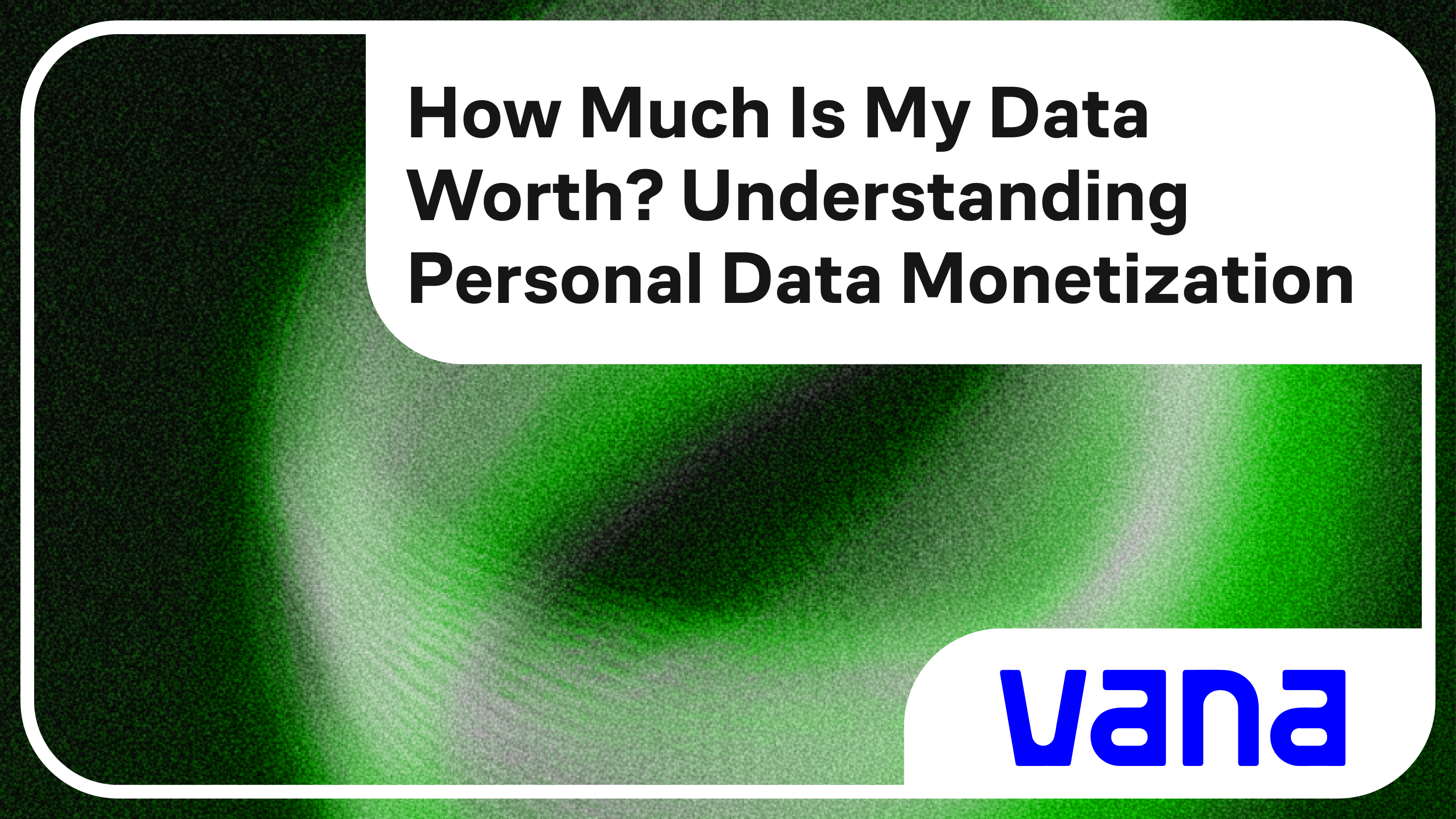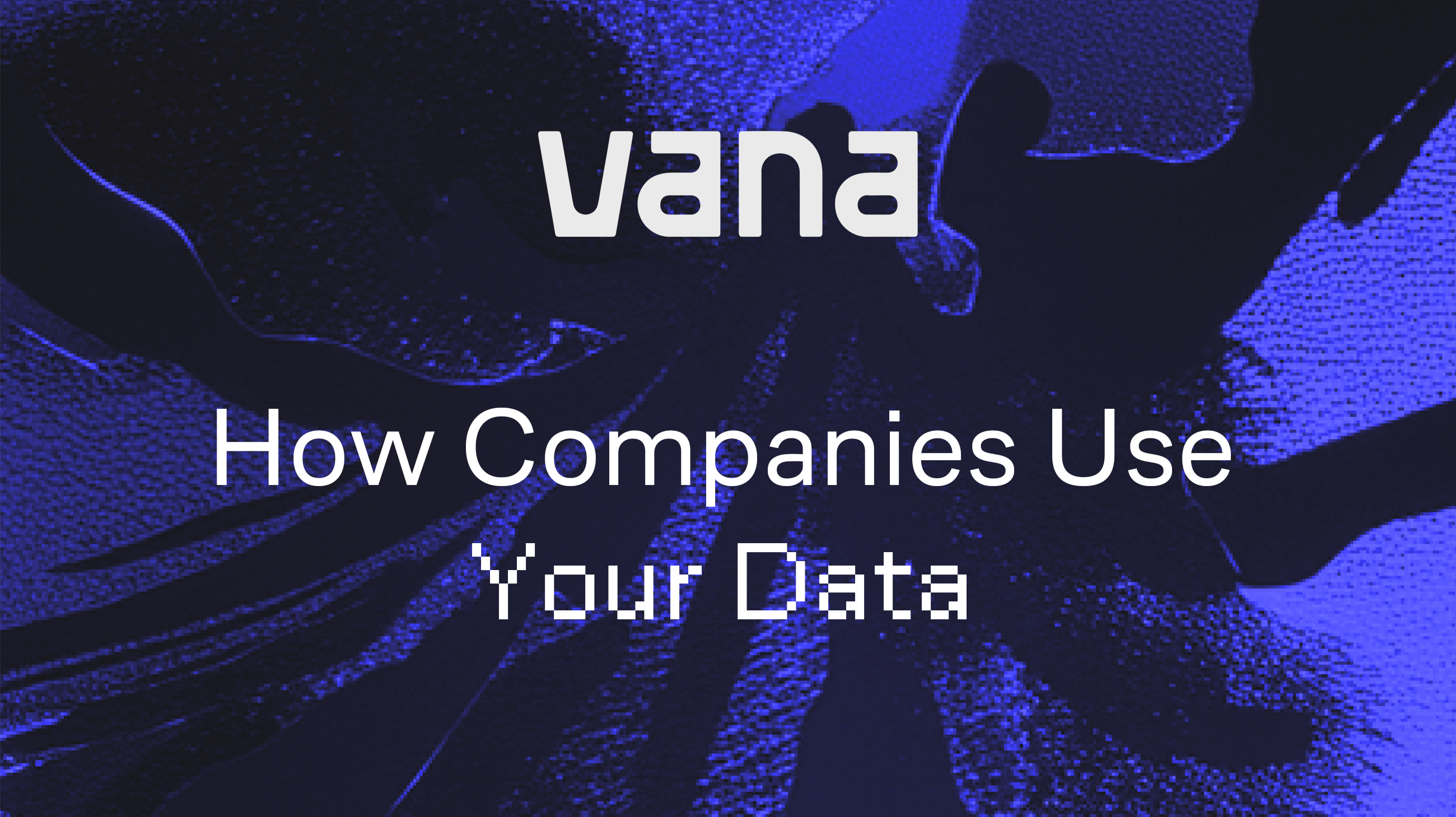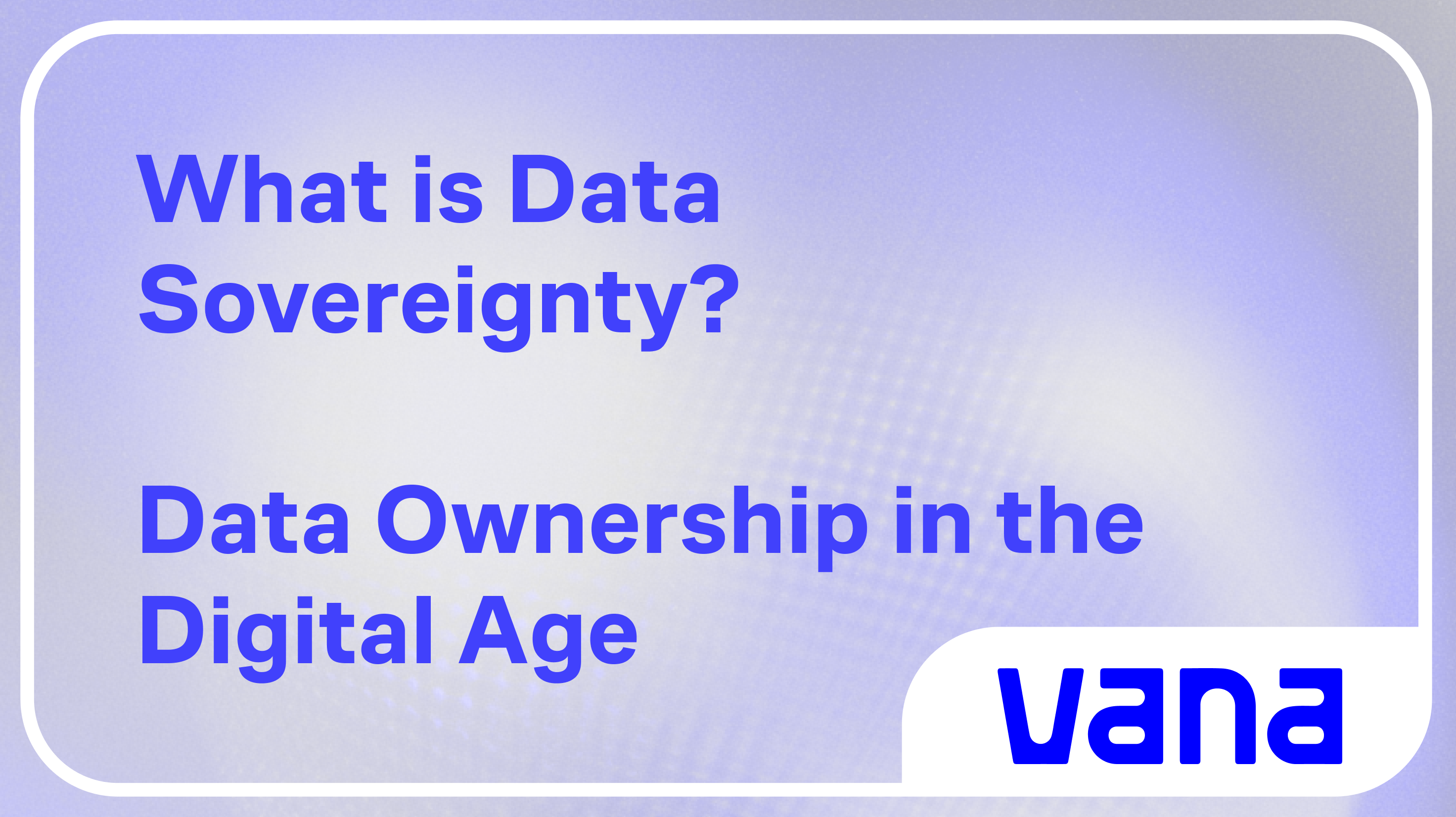What Is Digital Privacy? How Vana Is Reinventing Data Protection
In today’s hyperconnected world, every click, search, and scroll generates data about you. This data powers algorithms, personalizes ads, and shapes the digital experiences you see every day, often without your explicit consent.
So, what is digital privacy, really? It’s the ability to decide who gathers your information, how it’s used, and what you receive in exchange. Yet as the internet has evolved far from its original vision of open, user-driven information, that control has quietly eroded. Today, platforms profit from your every click and interaction, while you’re left with little insight into how your data is actually being used.
The good news: new blockchain-based systems like Vana are flipping the model, giving users ownership and agency over their data.
Understanding Digital Privacy in Today’s Connected World
Every digital action you take, from streaming music to shopping online, adds another line to your invisible data profile. These profiles are built through data collection methods like cookies, pixels, app trackers, location logs, and metadata harvesting.
That information fuels the modern ad economy. Tech companies analyze your clicks to predict what you’ll buy, what you’ll like, even how you’ll vote. This process, often invisible, is how companies use your data to generate billions in ad revenue while you receive little to nothing in return.
At its core, digital privacy means being able to choose how much of yourself you share online and with whom. But today’s systems aren’t built to protect that freedom, they’re built to profit from it.
The Hidden Cost of Convenience
We live in a world where convenience often wins over caution. “Free” platforms like social media and search engines seem harmless, but behind the curtain, they run on one primary currency: your data.
Every like, scroll, and share helps refine algorithms that track your behavior more precisely. How your data gets used extends beyond targeted ads. Risks like data breaches, identity theft, and unconsented sharing have become built-in flaws of today’s data economy.
According to the Pew Research Center, 81% of Americans believe they have little or no control over the data companies collect about them. Harvard Business Review calls this the “trust paradox” in which people want personalization but don’t trust the companies providing it.
So, how can users reclaim privacy without disconnecting from the digital world entirely?
How to Protect Personal Data Online
The first step in taking back control is awareness. You can start improving your privacy right now with a few simple habits:
- Review app permissions and disable unnecessary background tracking.
- Use privacy-focused browsers and VPNs to minimize data exposure.
- Encrypt files and messages to protect sensitive information.
- Download and review your data from platforms like Google, Meta, and TikTok. An act of digital transparency that helps you truly own your data.
But for those ready to go beyond surface-level fixes, emerging ecosystems are reshaping what privacy means in practice.
The Vana App is the first of its kind, a mobile ecosystem that gives you full visibility and control over your personal data. It allows you to aggregate data from across platforms, generate your unique VIBE (a digital fingerprint of your online self), and participate in community-owned datasets called DataDAOs or Data Collectives.
This isn’t about hiding your data, it’s about owning it.
The Limits of Traditional Privacy Solutions
VPNs, cookie banners, and ad blockers can only do so much. They act as shields, but not as solutions. Even with the best tools, your data often flows back into centralized systems that profit from it behind closed doors.
True data protection isn’t just about reducing exposure, it’s about changing ownership. The current model leaves power in the hands of corporations that decide how your information is used. Until that structure changes, privacy will always be an illusion.
That’s where decentralized technology steps in.
Blockchain and the Future of Data Privacy
Data privacy within blockchain and decentralized storage technologies offer a way to rebuild trust from the ground up. Instead of handing your information to intermediaries, blockchain stores permissions and ownership records transparently, so you can prove what’s yours, revoke access anytime, and even trace how your data is used.
This is the foundation of data sovereignty, the idea that individuals should have full control and verifiable consent over their digital assets.
Through Data Collectives or DataDAOs, users can contribute anonymized data to shared pools that power research or AI. In these systems, you decide when to share and what to share, often receiving rewards for your contribution.
For a deeper look at how this works, explore the Vana Whitepaper, which details how Vana’s decentralized architecture supports both privacy and utility.
As the World Economic Forum notes, blockchain-based identity and data systems could be key to restoring digital trust globally.
How Vana Is Redefining Data Protection
Vana is at the forefront of this new paradigm, a platform designed to turn privacy into empowerment.
By combining blockchain security with an intuitive user experience, Vana is now giving people control over their data through the Vana App and via Data Collectives. You can decide when to share, contribute to AI training ethically, and even receive rewards for doing so.
Vana’s approach transforms privacy from a defensive act into an active form of participation. Users can safely exchange data for value while keeping ownership intact. A model that redefines fairness in the digital age.
To understand the mission driving this transformation, read Vana Vision, our manifesto for a world where data ownership and human agency coexist.
From Data Privacy to Data Empowerment
Privacy isn’t about disappearing, it’s about deciding. With personal data ownership, individuals gain visibility, autonomy, and fairness in how their digital lives are shaped.
Vana’s model bridges privacy and progress: users maintain protection while contributing to ethical AI development. When data is shared transparently and consensually, everyone benefits, not just corporations.
The future of digital privacy is collective empowerment. It’s not about opting out; it’s about opting in, on your own terms.
Taking the First Step Toward True Privacy
The evolution from traditional privacy tools to decentralized solutions marks a turning point in the internet’s story.
It’s no longer enough to hide from data collection; now, you can take ownership. You can protect your information, shape how it’s used, and even earn value from it, all while supporting a fairer, more ethical digital ecosystem.
Learn more about how to own, protect, and empower your data with Vana.









